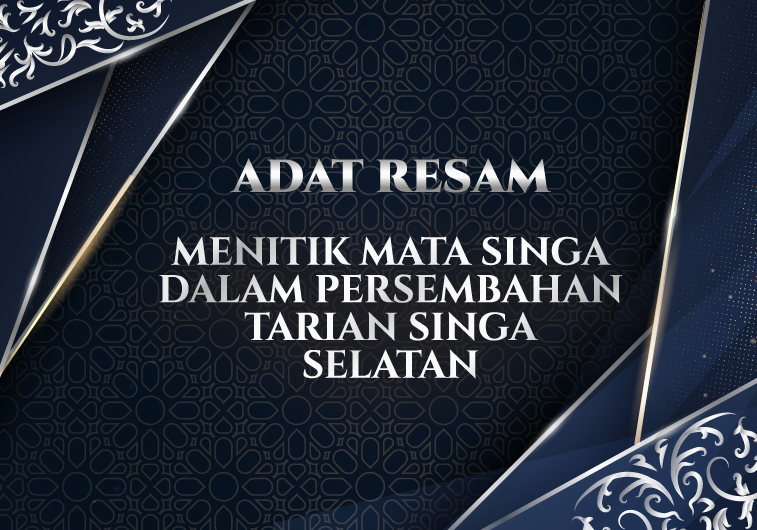ARTS AND CULTURE INFORMATION GATEWAY
Immerse yourself in the colorful world of art and culture! From traditional heritage to contemporary works, discover uniqueness that reflects the nation's identity and identity
ADAT RESAM MENITIK MATA SINGA DALAM PERSEMBAHAN TARIAN SINGA SELATAN
Picture
1
Video
No record
Today's Visitor
109
Number of Visitors
1110
Introduction and history
In the Southern lion dance, the "Drop the Lion's Eye" ritual is an old tradition in Chinese culture that aims to "animate" the lion statue before the performance. This ritual involves a respected person dripping paint into the lion's mouth, ears, and eyes. It symbolizes the spirit given to the lion, which is expected to bring courage, success, and prosperity to the community.
The traditional function and role of "Drinking the Lion's Eye" is to symbolically bring the lion statue to life before the dance performance, thereby giving the lion more vigor and enthusiasm. It also aims to bring luck, courage and joy to the community and the people who watch the lion dance.
The lion costume in the lion dance consists of two main parts: the head and the body. The lion's head is carefully carved, colored and decorated with feathers and decorations that highlight the majesty of this mystical creature. One dancer holds the lion's head, while another moves the lion's body made of brightly colored cloth, reflecting spirit and vitality.
Dancers wear loose clothing and bright colors such as red, yellow or gold, symbolizing strength, courage and luck. The special shoes worn facilitate fast and agile movement, allowing the dancers to perform acrobatics that depict the agility of a lion.
Important accessories in the Southern Lion Dance include decorative bells and gongs, which create a rhythm for the lion's movements. The sound of this musical instrument is believed to ward off evil spirits and bring good luck to the audience. Meanwhile, the lion's head is decorated with luxurious silk fabric, creating graceful and rhythmic movement during the performance. This silk cloth symbolizes luxury, glory and prosperity in customs.
The ingredients used are lime leaves to remove bad luck, ginger to remove wind, red powder to repel evil spirits, and a white brush to symbolize purity. The ingredients are placed on a red plate. Then, using a brush, the substance is applied to the lion's eyes, ears, nose, mouth, body, both legs and forehead.
The Southern Lion Dance begins with the ritual of "Drinking the Lion's Eyes," where a lion statue is given symbolic of spirit and spirit. Then, the dance begins with the sound of musical instruments, such as gongs and bells, which make the lion's movements more interesting. One dancer will handle the lion's head and the other will handle its body. As a symbol of good luck, the lion will dance with fast and energetic movements, sometimes perform acrobatics, and interact with the audience and objects, such as fruits or angpau. Often, this performance is performed during festivals to bring luck and prosperity.
Reference Source
Bahan Bacaan
Abbas, Nur Atiqah and Ahmad Hamdan, Ummul Aiman Hidayah and Mat Isa, Azman (2021) Kebudayaan masyarakat Cina: tarian singa / Nur Atiqah Abu Abbas, Ummul Aiman Hidayah Ahmad Hamdan and Azman Mat Isa. Jurnal Sejarah Lisan Malaysia (JSLIM), 5 (3). pp. 384-404. ISSN 2600-7088
Kata Malaysia (2020). Tarian Singa bukan Harimau. https://katamalaysia.my/culture/tarian-singa-bukan-harimau/
Selangor Kini. (2023). Tarian Singa Pembawa Tuah.https://selangorkini.my/2023/01/tarian-singa-pembawa-tuah/
Tokoh (jika ada temu bual tokoh) - TIADA -
Location
State JKKN Contact Information
Pn. Shariza Isa
Cultural Officer
Jabatan Kebudayaan dan Kesenian Negara Wilayah Persekutuan Kuala Lumpur
Kompleks JKKN WPKL,
Jalan Tun H.S Lee,
50000 Kuala Lumpur
03-20726431








